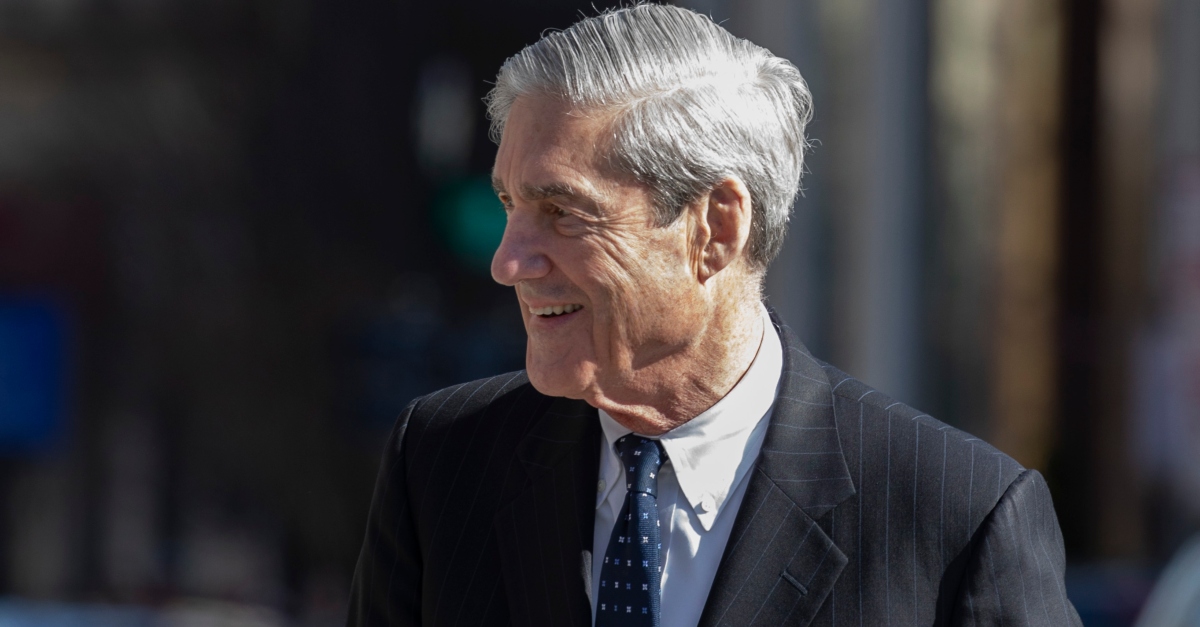
Federal prosecutors are asking a judge to smack down former Roger Stone aide Andrew Miller‘s request for a stay so that he can file a petition for a writ of certiorari to the Supreme Court. Why? Because, according to federal prosecutors, a stay would “delay an ongoing criminal investigation.”
The takeaway here is that this seems to confirm earlier reporting that Mueller’s grand jury was still “continuing robustly” — even after the Mueller Report was handed to William Barr.
“Contrary to Miller’s contention, the balance of equities further counsels against a stay. The need for expedition in this grand jury matter–which arises from a subpoena served more than a year ago–outweighs the only harm that Miller claims, which is the burden of traveling to Washington, D.C. (at government expense) to testify and the attendant risk of his case becoming moot,” prosecutors argued on Thursday. “Miller alleges no harm other than the general inconveniences that all witnesses face. Delaying his testimony, on the other hand, would delay an ongoing criminal investigation, to the detriment of the government and the public at large. Miller’s stay request should be denied.”
Miller continues to resist a subpoena to testify before Mueller’s grand jury and has challenged Mueller’s authority in both a U.S. District Court and a U.S. Appellate Court. He lost both times.
After the loss at the D.C. Circuit Court of Appeals, Miller asked for a stay so he could take this fight to the Supreme Court. The argument has been, and continues to be, that Mueller was a “principal officer” rather than an “inferior officer,” as defined by the Constitution.
Mueller was appointed as Special Counsel by Deputy Attorney General Rod Rosenstein (because Jeff Sessions recused himself); Mueller was not confirmed by the Senate. District Judges and Appellate Judges have both agreed that Mueller is only an “inferior officer” and didn’t need to be confirmed by the Senate.
Miller’s attorney Paul Kamenar filed the motion for a stay nonetheless, and made sure to mention Supreme Court Justice Brett Kavanaugh in a footnote.
On page six of the Kamenar filing was a footnote containing a Kavanaugh quote from Symposium: The Independent Counsel Act: From Watergate to Whitewater and Beyond. It read as follows: “A special counsel [should] be appointed in the manner constitutionally mandated for high-level executive branch officials: appointment by the President and confirmation by the Senate.”
Federal judges have rejected this.
“Because the Special Counsel is an inferior officer, and the Deputy Attorney General became the head of the Department by virtue of becoming the Acting Attorney General as a result of a vacancy created by the disability of the Attorney General through recusal on the matter, we hold that Miller’s challenge to the appointment of the Special Counsel fails,” D.C. Circuit Court of Appeals said before. “Accordingly, we affirm the order finding Miller in civil contempt.”
As University of Texas Law Prof. Steve Vladeck noted, however, this reference to Kavanaugh relates to the “Independent Counsel under the 1978, who was a lot more independent and autonomous than Mueller is/was under the current regulations.”
It’s also worth noting that Kavanaugh was talking about a special counsel like the Independent Counsel under the 1978 Act, who was a _lot_ more independent and autonomous than Mueller is/was under the current regulations:https://t.co/gD1qIU9tTG
— Steve Vladeck (@steve_vladeck) May 16, 2019
[Image via Tasos Katopodis/Getty Images]
Have a tip we should know? [email protected]